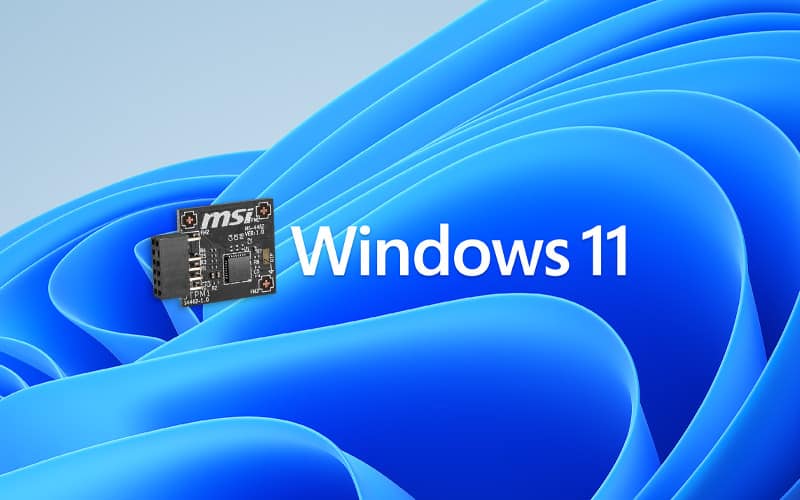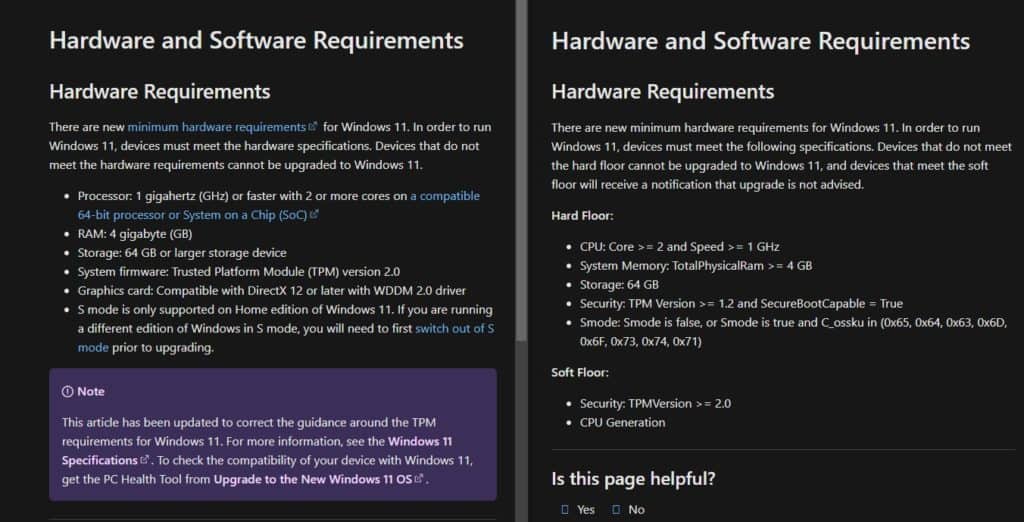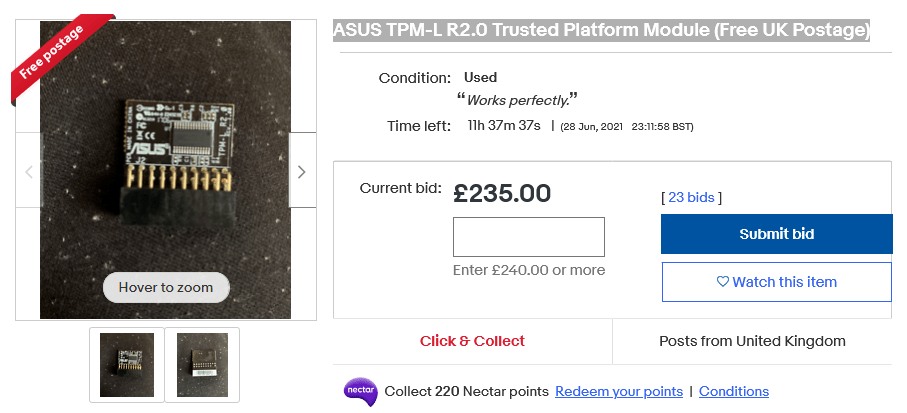Last Updated on
Windows 11 has been officially announced and along with it, a bevy of new features that most people weren’t expecting. Outside of embedded Android app support, there’s a slightly more interesting feature that has caught people off guard – TPM requirements.
What is a TPM?
However, what they haven’t considered is that Microsoft has also put out another requirement: CPUs.
We’ve got a full list of the CPUs that are needed to even run Windows 11 and most, if not all of these come with a built-in software TPM, as it has been rolling out with most hardware for a little while.
Microsoft said they are now using the current Insider Program to monitor how ‘older’ (seriously, an i7 7700K is nothing to sniff at!) will manage with Windows 11.
The breakdown at the time of writing is for Intel users, anything below 8th gen will not be supported and those on AMD, Ryzen 1 and below aren’t either.
Yes, your fancy gaming PC or workstation is possibly not eligible for this Autumn’s Windows update.
What’s worse, some CPUs – namely major workstation CPUs like the i9-9980XE – aren’t even on the list and still currently on sale for over £1000.
It doesn’t help that Microsoft fumbled all this new information, as they had to correct an article that had different requirements to the official line and over the course of the weekend, actually hardened down on the need for people to only choose from the specified CPUs and TPM 2.0 requirements.
Our very own Paul has some choice words to say about this!
Image via Sean Hollister, The Verge
As most of the CPUs listed might already have TPM 2.0 built-in, it’s best to go check that in your BIOS and we’ve got a handy guide for you to follow!
I’m out of luck, so seriously, now what?
Using my Mystic Meg powers, I suspect a lot of PCs will be bought or upgraded in 2025 and 2025, however, my clairvoyance does not allow for me to see what parts you should be aiming for in the not too distant future.
If you're really in a pickle and want to be ready to upgrade to Windows 11 when it launches, check our buyer's guides for PCs across a wide range of budgets!
If you’ve never heard of it, don’t worry. Seriously. It’s one of those things you’ve never had to actually worry about until now, but this small addition has sent waves through the whole industry.
TPM or Trusted Platform Module is a small chip that’s built into some motherboards or CPUs (and in some cases, not even turned on!) Usually found being used in businesses for the security of company computers, they provide a hardware level of protection alongside any software solutions you’ll find available (BitLocker, etc.).
Microsoft wants this extra layer of protection for regular users of Windows 11 to ensure that the ever-rising firmware attacks on Windows systems in the last few years can be dissipated, so the TPM chips are required for Windows 11.
In a blog for Microsoft, its director of OS security, David Weston, has stated that they’ve found an 83% rise in attacks straight to the firmware with very few actually working towards protecting it.
Scalping Abound
However, as with most things in 2021, scalpers have immediately begun to rush to the markets and either gobble up everything to hoard like a dragon on gold or immediately flip for nearly five or ten times the price on eBay.
Scalping has become a normal thing in the PC world as of late. With Bitcoin and other cryptocurrencies making graphics cards scarce and a silicon chip shortage raging on due to the COVID-19 pandemic, it’s only natural that these people would flock to the next big thing.
Thanks to Windows 11, people are scalping TPM2.0 modules as well now.
$24.90 ➡ $99.90 in just 12 hours pic.twitter.com/9TTHC2c47w
— Shen Ye (@shen) June 25, 2021
It’s a huge issue to require a new hardware requirement, especially in the situation that the industry currently faces. With a shortage of parts floating about, Microsoft is further limiting those who might meet the specs, but don’t have the needed TPM 2.0 chip.







